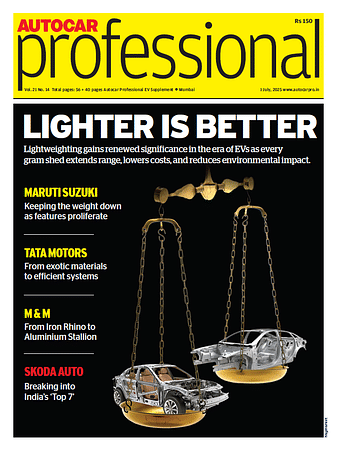US Tariffs Could Cut Indian Auto Component Industry Earnings by Up to Rs. 4,500 Crore: ICRA
Domestic demand remains the primary revenue driver while debt metrics expected to stay stable despite margin pressures.
ICRA has revised its revenue growth forecast for the Indian auto component industry to 6-8% for FY2026, down from the previously projected 8-10%, citing potential mid to high single-digit revenue decline in exports to the United States due to recently imposed tariffs. According to the rating agency, the steep increase in US import tariffs could burden the entire supply chain with an incremental cost of approximately Rs. 9,000 crore.
The cost impact will need to be distributed among US consumers, US importers, and Indian exporters, with the share borne by Indian manufacturers dependent on their competitiveness and product price elasticity. Operating margins for the industry are expected to moderate by 50-100 basis points against earlier estimates, settling at 10.5-11.5% in FY2026, assuming 30-50% of the incremental costs are absorbed by Indian exporters.
For export-focused companies specifically, the margin decline could be more significant at 150-250 basis points. However, ICRA expects debt metrics and liquidity to remain comfortable for most exporters despite these challenges.
"While the auto component suppliers with whom ICRA has interacted indicate that most of the incremental costs would be passed on, however, as in any buyer-supplier negotiation, the extent of pass-through would depend on the supplier's criticality, share of business, competition, and technological intensity of the components supplied," said Shamsher Dewan, Senior Vice President and Head - Corporate Ratings Group, ICRA Limited.
"If, on an average, 30-50% of the incremental tariff costs are to be absorbed by the Indian auto component exporters, we estimate an earnings impact of roughly Rs. 2,700-4,500 crore, which is 3-6% of the operating profits of the auto component industry and 10-15% of the operating profits of the auto component exporters," Dewan added.
The US market represents only about 8% of overall industry revenues, with domestic sales accounting for over 70% of the industry's business. Indian exports to the US had grown at a compound annual growth rate of 15% during FY2020-FY2024, benefiting from vendor diversification by global OEMs, higher value addition, and favorable foreign exchange movements.
The tariff landscape has been volatile, with a 25% tariff imposed on key automobile parts effective May 3, 2025, affecting approximately 65% of India's auto component export basket. Additionally, a 25% tariff was imposed on steel and aluminum content in auto parts effective March 12, 2025, followed by a reciprocal 26% tariff on exports from India, which is currently paused for 90 days with a 10% ad valorem duty still applicable.
ICRA believes that Indian exporters are unlikely to lose business in the near term due to high switching costs and long product development cycles. The agency also notes potential medium-term opportunities if Indian components remain cost-competitive compared to Chinese alternatives under similar tariff conditions.
RELATED ARTICLES
Hyundai Motor India Crosses 1.1 Million Sunroof-Equipped Vehicle Sales in Five Years
More than half of Hyundai’s domestic car sales in early 2025 featured sunroofs, reflecting a steady shift in consumer de...
Autocar Professional’s July 1, 2025 Edition is out!
Autocar Professional's latest edition highlights lightweighting as a key driver in automotive development, now central t...
Xperi Showcases HD Radio Tech for Indian Automotive Market
The California-headquartered technology major showcased its high-definition radio reception technology in India while di...





 By Shruti Shiraguppi
By Shruti Shiraguppi
 28 Apr 2025
28 Apr 2025
 1454 Views
1454 Views





 Sarthak Mahajan
Sarthak Mahajan


 Autocar Professional Bureau
Autocar Professional Bureau

 Mayank Dhingra
Mayank Dhingra

